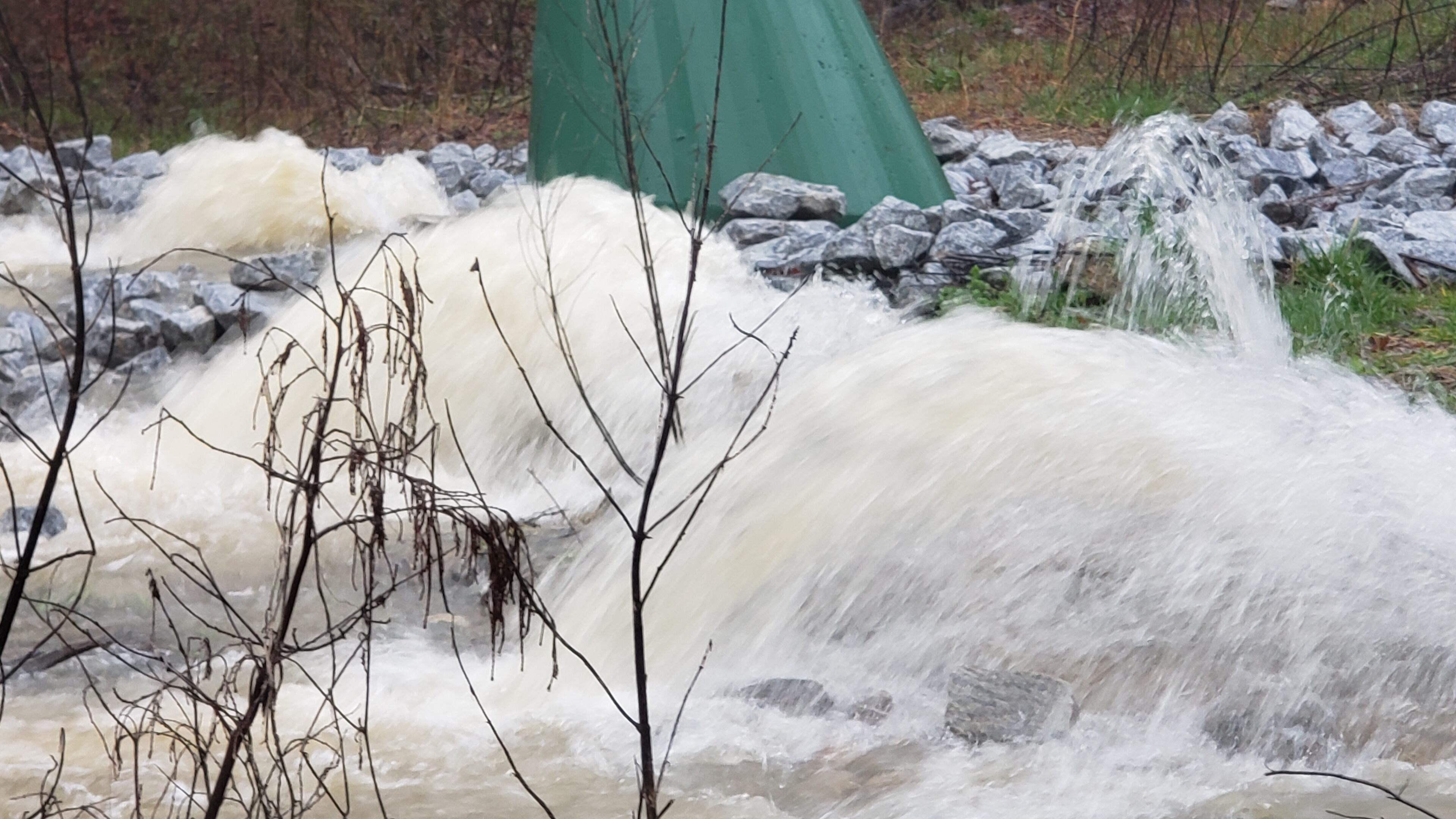Another million-gallon sewer spill reported at DeKalb trouble spot

Recent heavy rains produced a number of sewer spills in DeKalb County, including another million-gallon gusher at a frequent trouble spot.
According to a new incident report from the county, about 1,031,000 gallons of sewage poured out of manholes near Meadow Creek Path in Lithonia — and into nearby Snapfinger Creek — on July 20. Rain reportedly entered the aging sewer system through cracks, pipes and other openings, forcing sewage out.
That’s a common phenomenon in DeKalb County, which has been under a federal consent decree to repair its long-neglected wastewater system since 2011. At least 11 similar, smaller spills were reported last week as well.
But officials say the Meadow Creek Path site has been especially susceptible to such spills due to its proximity to the county’s Snapfinger Advanced Wastewater Treatment Facility.
Construction on a revamped facility has dragged on for years beyond the initial completion date and officials have said that one of the plant’s clarifier tanks is out of commission during the work. That reduces storage capacity at the plant, which forces more water back into the system during heavy rain events.
That in turn forces sewage out of manholes and other imperfections in the system.
Last week’s spill at Meadow Creek Path was at least the sixth of over a million gallons since the start of 2020. Additional spills of 9.2 million, 6.9 million, 4.1 million, 2.1 million and 1.6 million gallons have been reported.
Other spills of about 990,000 gallons, 802,000 gallons, 535,000 gallons have been reported as well.
That’s at least 26 million gallons of sewage spills at one location.
Such spills present public health and ecological dangers by spreading bacteria like E.coli, and anything over 10,000 gallons is considered a “major” spill by the Georgia Environmental Protection Division.
DeKalb’s original consent decree with state and federal environmental regulators expired last June and, while CEO Michael Thurmond has made the sewer system a top priority during his administration, the county is still a long way off from completing the required repairs and coming into compliance with the Clean Water Act.
County leaders and regulators reached an agreement on an updated consent decree last fall, but it has not yet been submitted for approval in the U.S. District Court in Atlanta.
As recently as this month, federal prosecutors have said they’re still reviewing public comments before formally asking Judge Steven D. Grimberg to weigh in on the new agreement.
In an order filed July 16, Grimberg blasted prosecutors for taking so long.
“The evaluation of these comments appears to be taking an inordinate amount of time,” Grimberg wrote. “Even assuming that the United States did not begin its review process until the extended public comment period entirely closed on December 4, the United States has still had over 32 weeks to review 39 comments.”
The judge gave the prosecutors 30 days to file a notice recommending approval or denial of the modified consent decree — or, if they aren’t ready, to provide “a detailed accounting of the hours expended on this matter” and an explanation of delays in the comment review process.



